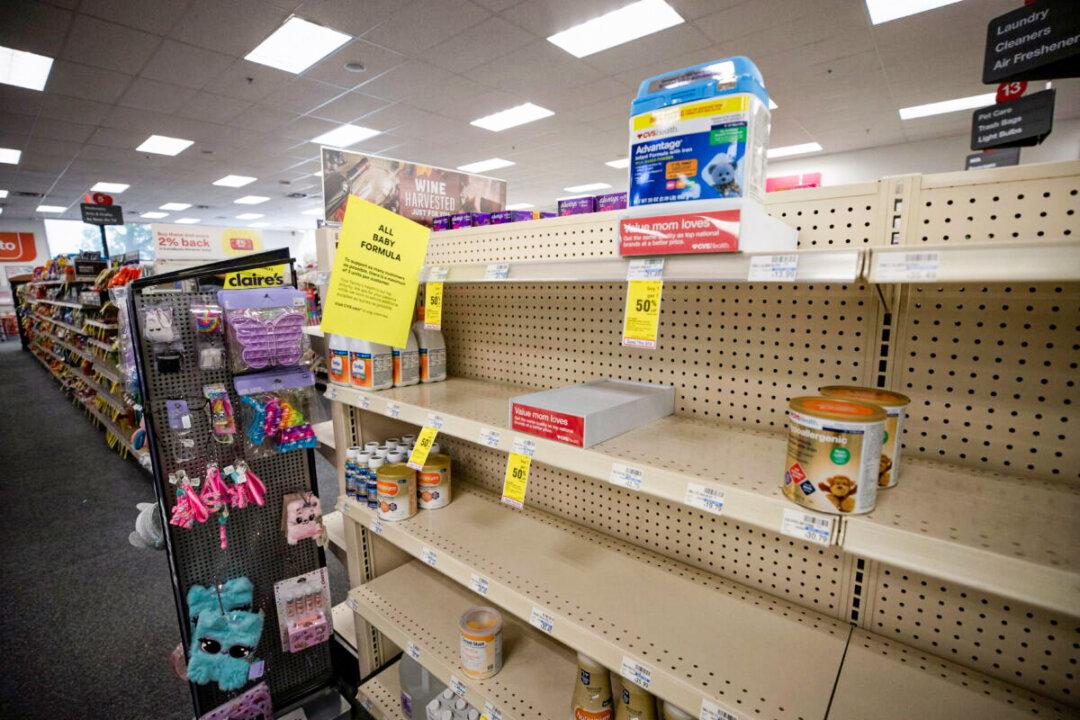Food and Drug Administration (FDA) Commissioner Robert Califf said the severe nationwide shortage of baby formula is expected to be eased within two months.
Testifying before a Senate hearing, Califf said that while he cannot give exact dates, his expectation is “that within two months we should be beyond normal and with a plethora” of formula supply.




